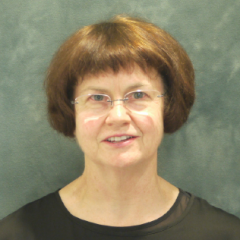Research
Biomarker research
Biomarkers are needed to improve diagnosis, identify and predict progression, guide targeted therapy and monitor treatment responses in CKD. Estimates of glomerular filtration indicate residual renal function, and proteinuria/albuminuria is an additional risk factor for progression, ESKF and nonrenal deaths. Beyond that, however, biomarkers have not yet shed a great deal of light on causes or predictions in renal disease. This might reflect the many “causal” renal diseases, the multiple comorbidities, uncertain stability of renal function at any one point, and various pathways of progression. However, the CanPREDDICT study, the CKD Biomarker Consortium and the CRIC study have published promising results, presenting the opportunity for biomarker validation. In our framework, selection of CKD patients for studies based, not only on their current profiles, but on knowledge of their course to that point, will enhance likelihood of meaningful findings.
Approaches: We are consolidating the expertise of CI Endre, Fassett, Coombes, Gobe and colleagues into Australia’s largest CKD biomarker group, and applying it to the most important outcomes of CKD, progression and CV risk. CI Endre’s group leads the country in biomarker research on acute kidney injury (AKI associated with drugs, chemotherapy, antibiotics, environ-mental toxins, trauma, and ischaemia), in inflammatory markers, renal repair/regeneration, fibrosis and progression to chronic kidney disease. He pioneers modelling of the added value of biomarkers to current clinical models. The UQ group has strong research records in oxidative stress, ischaemia, fibrosis, apoptosis and biomarker discovery.
- IN PRESS - Ellis RJ, Cho Y, Del Vecchio SJ, McStea M, Morais C, Coombes JS, Wood ST, Gobe GC and Francis RS. Outcome measures used to report kidney function in studies investigating surgical management of kidney tumours: a systematic review. Eur Urol Focus (2018) DOI: 10.1016/j.euf.2018.04.012. [Epub ahead of print]
- Ellis RJ, Del Vecchio SJ, Ng, KL, Dimeski G, Pascoe EM, Hawley CM, Johnson DW, Vesey DA, Coombes JS, Morais C, Francis RS, Wood ST, Gobe GC. Factors associated with acutely elevated serum creatinine following radical tumour nephrectomy: the Correlates of Kidney Dysfunction-Tumour Nephrectomy Database study. Translational Andrology and Urology 2017;6(5) DOI: /10.21037/tau.2017.08.15
- Ellis RJ, Del Vecchio SJ, Ng KL, Owens EP, Coombes JS, Morais C, Francis RS, Wood ST, Gobe GC. The Correlates of Kidney Dysfunction – Tumour Nephrectomy Database (CKD-TUNED) Study: Protocol for a Prospective Observational Study. Asian Pacific Journal of Cancer Prevention 2017;18 DOI: 10.22034/APJCP.2017.18.12.3281
- Ellis RJ, Joshi A, Ng KL, Francis RS, Gobe GC, Wood ST. Optimising assessment of kidney function when managing localised renal masses. Medical Journal of Australia 2017;207(3). DOI: 10.5694/mja17.00161
Acute kidney injury
- Succar L, Pianta TJ, Davidson T, Pickering JW, and Endre ZH. Subclinical chronic kidney disease modifies the diagnosis of experimental acute kidney injury. Kidney International 2017;92(3) DOI: 10.1016/j.kint.2017.02.030
- Wilson GJ, Kark A, Francis LP, Hoy WE, Healy HG, and Mallett AJ. The increasing rates of acute interstitial nephritits in Australia: a single centre case series. BMC Nephrology 2017;18(329) DOI:10.1186/s12882-017-0747-7.
Renal genetics
- Mallett A, Patel C, Maier B, McGaughran J, Gabbett M, Takasato M, Cameron A, Trnka P, Alexander SI, Rangan G, Tchan MC, Caruana GJ, Quinlan C, McCarthy HJ, Hyland V, Hoy WE, Wolvetang E, Taft R, Simons C, Healy HG and Little M. A protocol for the identification and validation of novel genetic causes of kidney disease. BMC Nephrology 2015;16(152).
- Mallett A, Fowles LF, McGaughran J, Healy HG, Patel C. A multidisciplinary renal genetics clinic improves patient diagnosis. Medical Journal of Australia 2016;204(2).
The ageing kidney
- 'Nephron loss in the ageing kidney — it’s more than you' (2016), John F Bertram and Wendy E Hoy. Nature Reviews Nephrology, 12.










